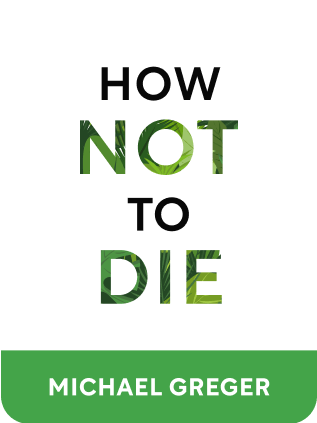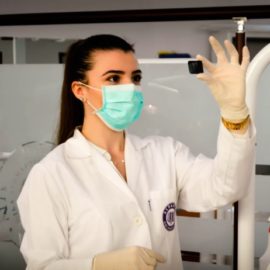

This article is an excerpt from the Shortform book guide to "How Not to Die" by Michael Greger. Shortform has the world's best summaries and analyses of books you should be reading.
Like this article? Sign up for a free trial here .
Is it possible to prevent colorectal cancer? What are some things you can do to lower your risk of developing the disease?
Colorectal cancer is one of the most common cancers in the United States. Most cases of colorectal cancer could have been prevented. The most important rule of thumb to prevent colorectal cancer is to get regular stool testing starting at the age of 50 to 75. Diet is another important prevention factor.
Below is a list of things you can do to lower your risk of developing colorectal cancer.
Colorectal Cancer Prevention
Colorectal cancer is among the most treatable cancers—if diagnosed before it spreads the colon, the 5-year survival rate is 90%.
The following list of recommendations on how to prevent colorectal cancer is taken from How Not to Die by Gene Stone and Michael Greger:
Have larger stool size during bowel movements.
- Larger stools and faster intestinal transit time are associated with lower rates of colon cancer.
- A good stool weight is half a pound. People with quarter pound stools have 3x the rate of colon cancer.
- The larger the stool, the faster the transit time. A good time is 24-36 hours. This can be tested by eating beets, then noticing when your stool turns pink.
- Constipation can be solved with dietary fiber.
Phytates
- Found in seeds, grains, beans, and nuts.
- Phytates have a host of good health properties: they’re antioxidant, anti-inflammatory, anti-angiogenic, and immune-enhancing (by activating natural killer cells).
- In lab studies, phytates also inhibit the growth of human cancer while leaving human cells alone.
- Phytates remove excess iron, which can generate hydroxyl radicals.
- Meat eaters absorb high amounts of heme iron, which is often not counterbalanced by eating more seeds and nuts.
- Phytates were once feared to inhibit mineral absorption, but later studies showed that people eating high levels of phytates tend to have greater bone mineral density and fewer hip fractures.
- High vegetable, low-meat diets have been shown to prevent colorectal cancer
- Increasing bean consumption by ¼ cup a day cuts polyp recurrence by 65%.
Berries
- Berries contain antioxidants, which suppress cancer cell growth in vitro.
- Eating black raspberries cut the polyp count of patients with familial adenomatous polyposis in half.
Turmeric
- Contains curcumin, which has antioxidant and anti-mutagenic properties. Curcumin doesn’t get absorbed well into the bloodstream, but it stays intact in the digestive tract to interact with polyps.
- In a study, curcumin reduced the occurrence and size of polyps throughout the spectrum of colorectal cancer, from aberrant foci to benign polyps to cancerous polyps, by up to 40%.
- Cancer rates in India are much lower than those in the United States—for example, the US shows 10 times more colorectal cancer, 12x more kidney cancer. Turmeric may explain part of it, but another contributor may be less meat-eating: only 7% of Indians eat meat on a daily basis, with most of their diet consisting of leafy vegetables and legumes.
Red meat problems
- Eating processed and unprocessed red meat is associated with increased mortality from cancer and heart disease, and lower lifespans—even after controlling for age, weight, alcohol, exercise, smoking, family history, and intake of plant foods. This suggests there is something bad about eating meat itself.
- It could be heme-iron—iron is a pro-oxidant (the opposite of an antioxidant) that generates free radicals. The heme-iron in meat is also absorbed more effectively by the digestive tract compared to non-heme iron from plants, and heme-iron also has less autoregulation of absorption to prevent you from absorbing too much. In short, if you have too much iron in your body, you stop absorbing non-heme iron from plant foods, but you keep absorbing heme iron from meat.
- Good plant sources of iron include whole grains, legumes, nuts, seeds, dried fruits, and green leafy vegetables.
- Vitamin C helps with iron absorption.

———End of Preview———
Like what you just read? Read the rest of the world's best book summary and analysis of Michael Greger's "How Not to Die" at Shortform .
Here's what you'll find in our full How Not to Die summary :
- The health benefits of a plant-based, whole-food diet
- How to reduce your risk of developing the most common diseases that can kill you
- The 12 foods you should eat daily to maximize health benefits






